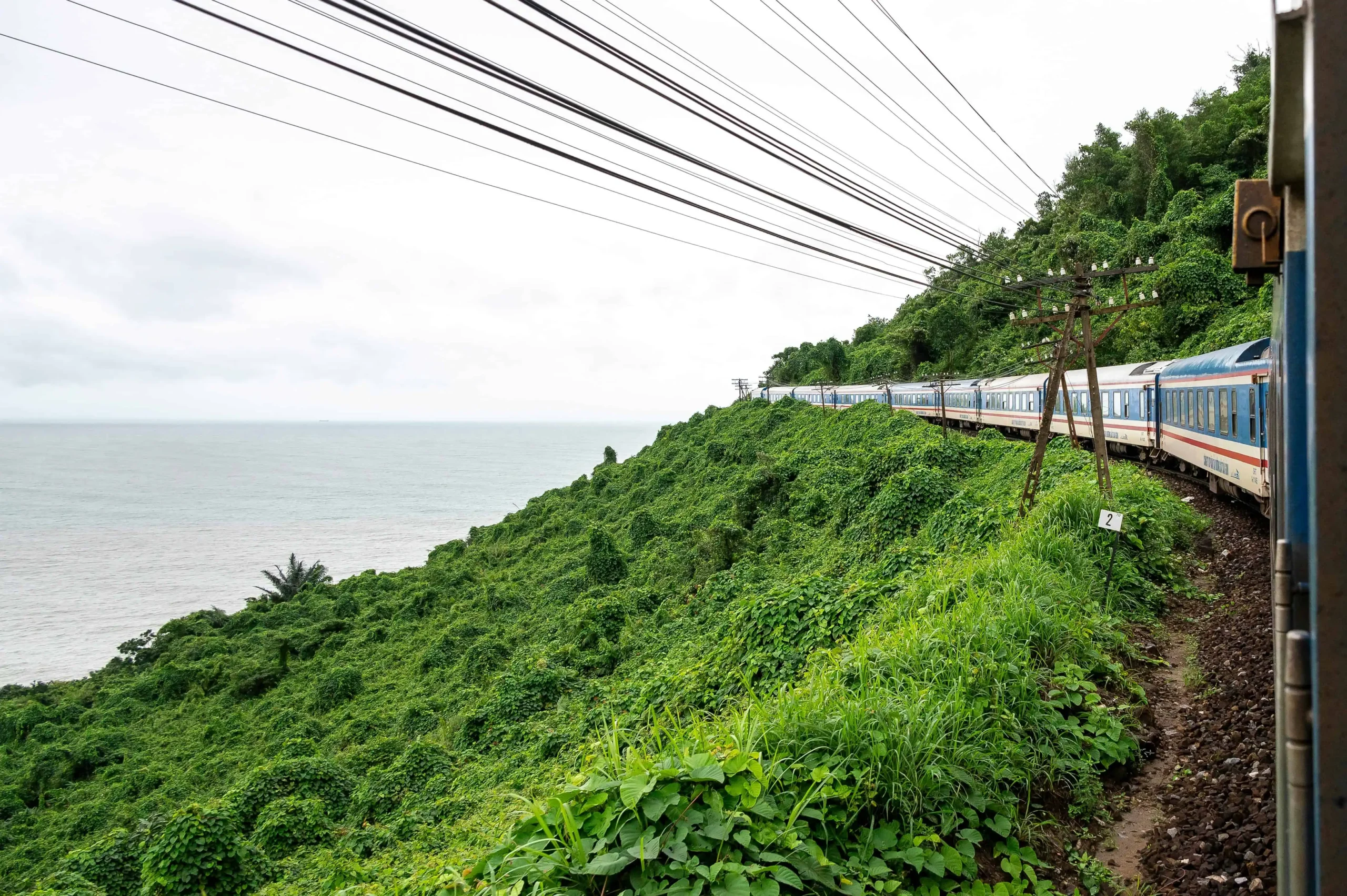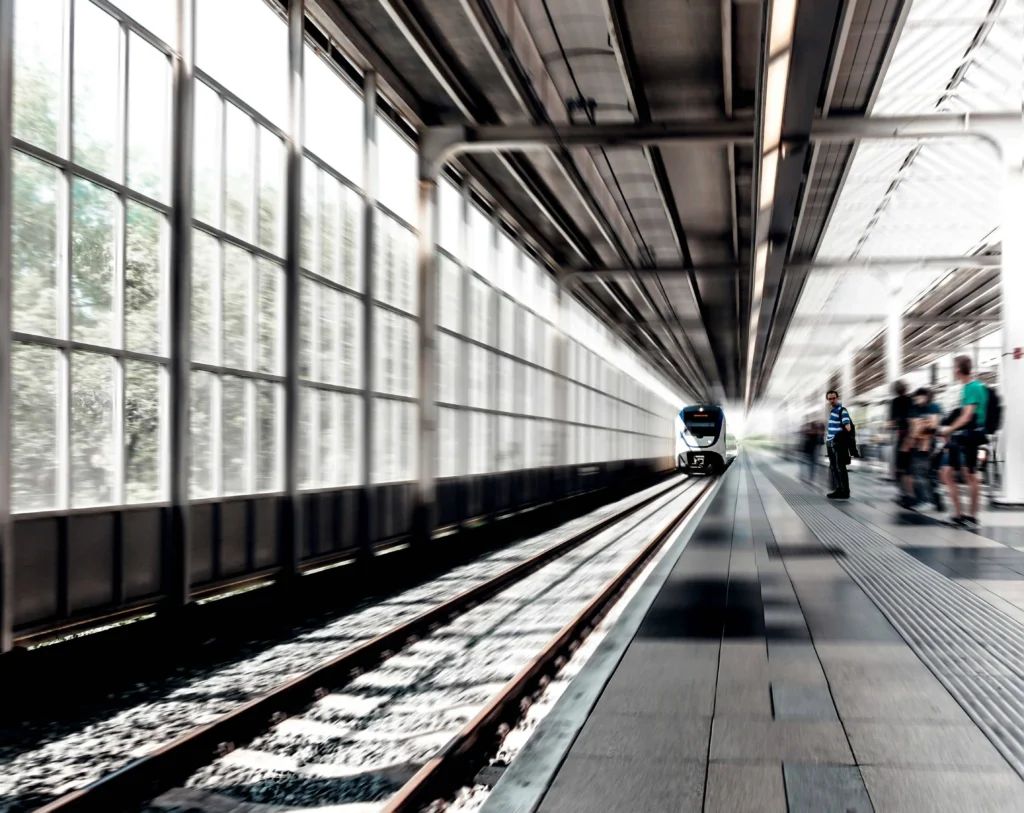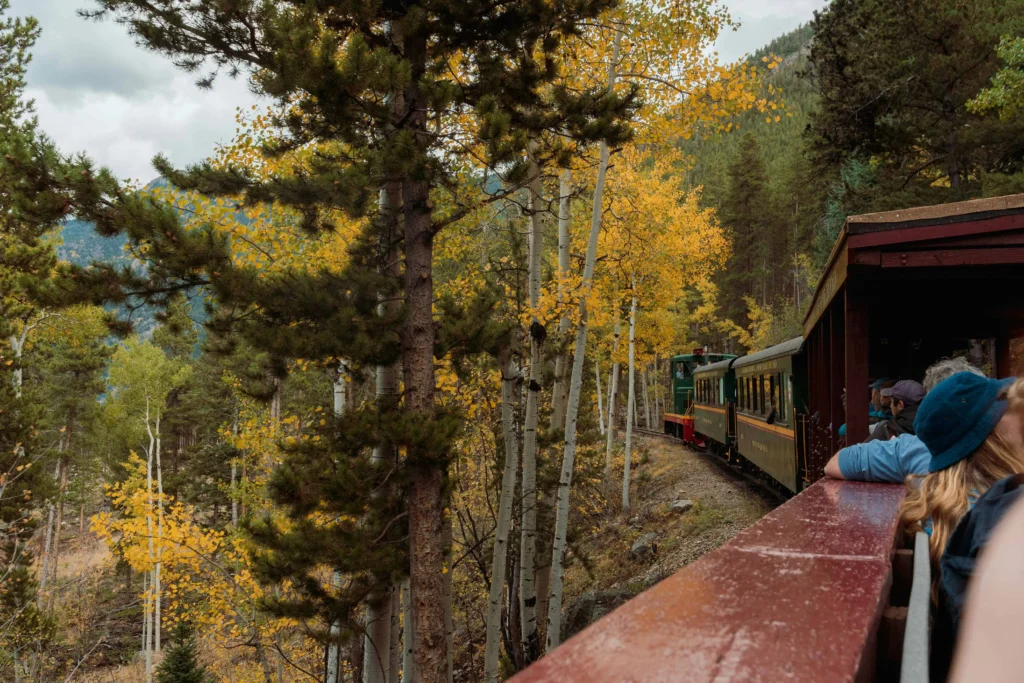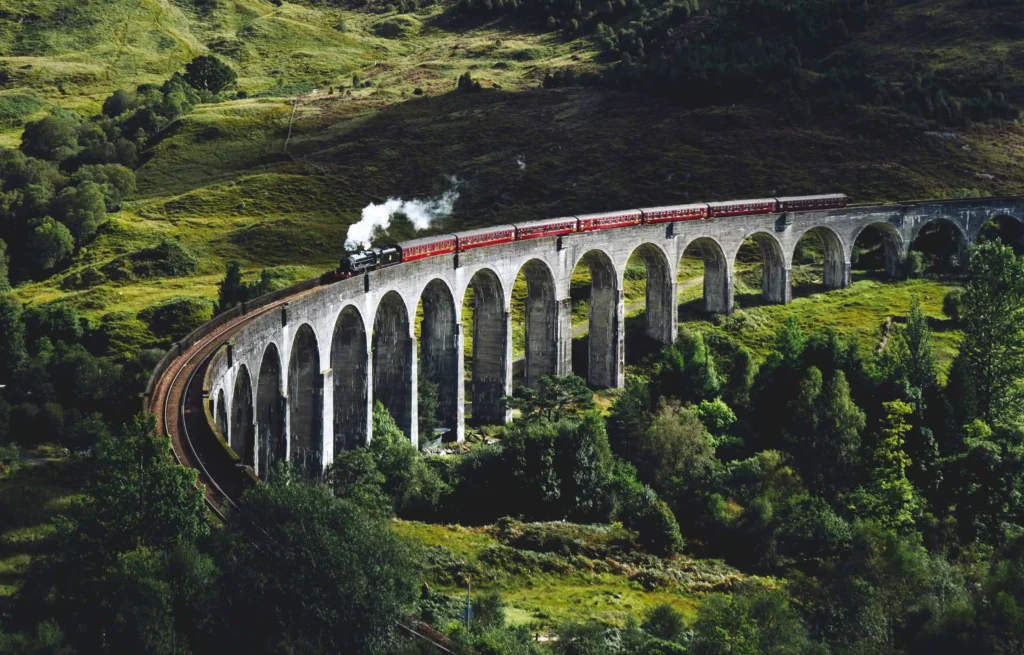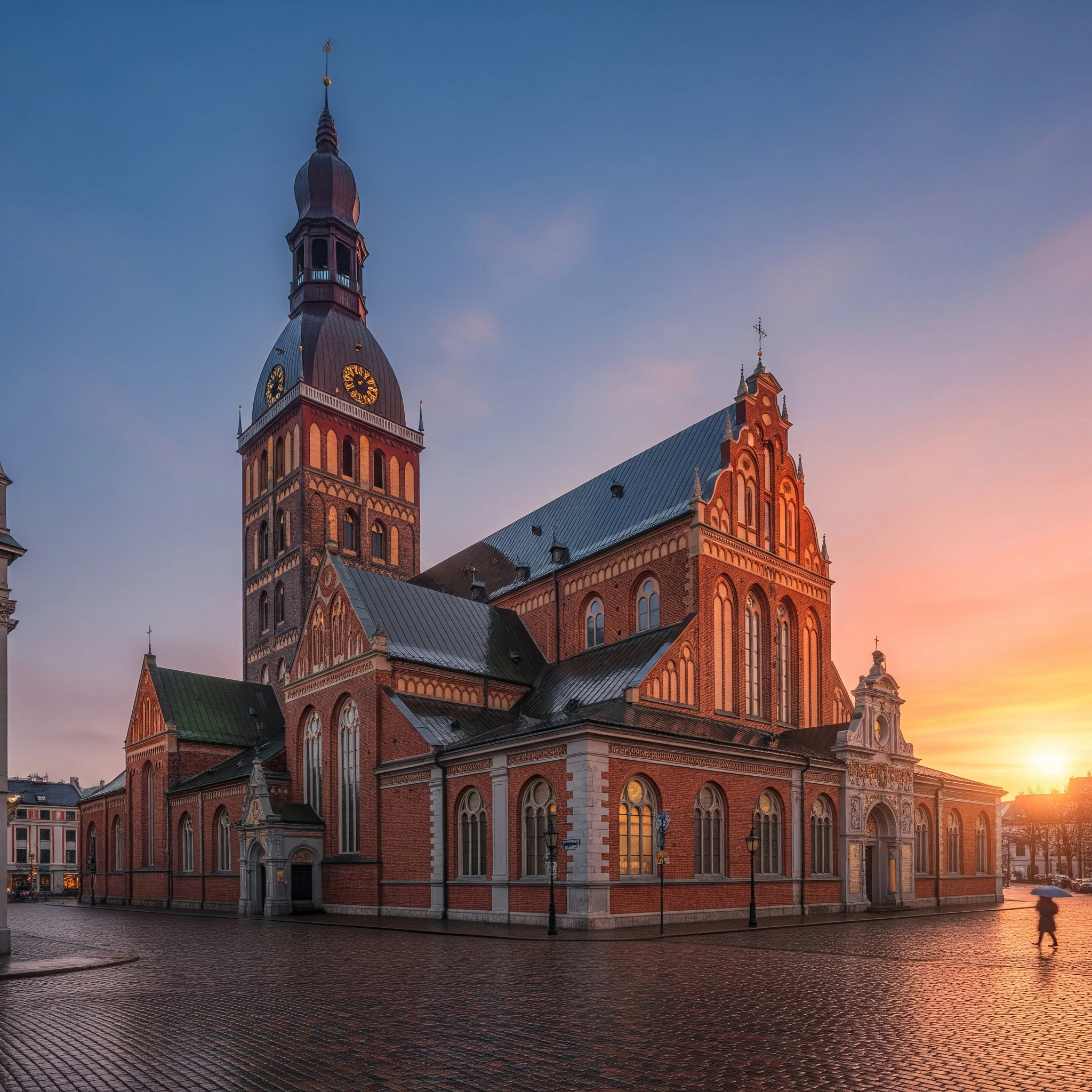Picture this: you’re gliding through the European countryside, sipping tea as rolling hills and charming villages pass by your window. No rush, no hassle – just pure, unadulterated travel bliss. Welcome to the world of slow travel!
It’s time to rethink how we explore our beautiful planet. In this guide, we’ll dive into the what, why, and how of slow tourism, with a special focus on swapping cramped plane seats for luxurious train journeys. Get ready to embark on a journey that’s as enriching as the destinations themselves!
What Exactly Is Slow Travel?
Slow travel isn’t just a trend; it’s a philosophy that’s reshaping the way we experience the world. At its core, slow tourism is about mindful travel and embracing a more leisurely pace. It’s the antithesis of whirlwind city breaks and packed itineraries. Instead, it encourages travellers to travel slowly, immerse themselves in local cultures, savour experiences, and prioritise quality over quantity.
The principles of slow travel align closely with the slow food movement, emphasising sustainability, authenticity, and connection. By choosing overland travel options like trains, slow travellers reduce their carbon footprint while simultaneously deepening their engagement with the places they visit.
Slow travel is as much about the journey as it is about the destination. It’s about those chance encounters on a long-distance train, the impromptu detours to hidden gems, and the luxury of time to truly absorb your surroundings. In essence, it’s a more eco-friendly tourism approach that benefits both the traveller and the communities they visit.
Definition and Origins
Slow tourism is more than just a way to get from one place to another; it’s a mindset that prioritises sustainability and quality over speed and mass tourism. Imagine savouring every moment of your journey, from the first sip of local wine to the last sunset over a picturesque village. This approach to travel focuses on experiencing a destination at a relaxed pace, allowing for a deeper understanding and appreciation of the local culture, people, and environment.
The origins of the slow travel movement can be traced back to Italy in the 1980s, sparked by the slow food movement. ‘Slow Food’ was a middle-finger to fast food chains and a call to preserve traditional cuisine and farming methods. Just as the slow food movement emphasises savouring meals and supporting local producers, slow tourism encourages travellers to immerse themselves in local cultures and support environmentally responsible practices. Over the years, the philosophy has evolved to include a broader range of experiences and activities, all promoting a more sustainable and immersive way to explore the world.
The Benefits of Embracing Slow and Low Carbon Travel
Opting for slow travel opens up a world of benefits that go far beyond just ticking destinations off a list. Here’s why you should consider this transformative travel philosophy:
- Deeper Cultural Immersion: By staying longer in fewer places, you have the opportunity to forge authentic travel experiences. You’re not just passing through to tick a city off your list; you’re living like a local, even if just for a short while. Domestic trips can be an excellent way to practice slow travel by extending stays and exploring new areas.
- Reduced Environmental Impact: Sustainable transport options like trains significantly reduce your carbon footprint. Plus, slower travel often means supporting local economies more directly.
- Improved Mental Well-being: Slow travel is the ultimate digital detox travel experience. It allows you to escape the hustle and bustle, reducing stress and improving mindfulness.
- Personal Growth: The challenges and experiences of slow travel offer countless opportunities for self-discovery and personal development.
- Cost-Effectiveness: While it might seem counterintuitive, slow travel can often be more budget-friendly. Longer stays can mean better accommodation deals, and you’ll be less tempted by tourist traps.
Trains: The Ultimate Slow Travel Companion
Did you know that train travel can reduce your carbon footprint by up to 86% compared to domestic flights?
When it comes to slow travel, trains reign supreme. Rail adventures offer a unique blend of comfort, scenery, and eco-friendliness that’s hard to beat. Here’s why trains are the perfect mode of transport for the discerning slow traveller:
- Scenic Routes: From the window of a train, you can watch diverse landscapes unfold, from bustling cities to remote countryside. It’s like a constantly changing living postcard!
- Comfort and Amenities: Modern trains, especially in Europe, offer a level of comfort that puts economy class flights to shame. Think spacious seats, dining cars, and even sleeper cabins on long journeys.
- Social Opportunities: Trains provide ample chances to meet fellow travellers. Whether it’s striking up a conversation in the dining car or sharing a compartment, you’re bound to make interesting connections.
- Seamless City-to-City Travel: Unlike airports, train stations are usually located in city centres, making your arrival and departure a breeze.
- Flexibility: With options like Interrailing, you can create flexible itineraries that allow for spontaneous changes to your journey.
Planning Your Flight Free Adventure
Ready to embark on your slow travel journey? Here are some tips to get you started:
- Research Rail Routes: Websites like Seat61.com are great options for planning train journeys across Europe and beyond.
- Consider one of our guided small-group train journeys to explore unique and less traveled routes.
- Book in Advance: While slow travel is about flexibility, booking long-distance trains in advance can save you money.
- Pack Light: Remember, you’ll be carrying your luggage on and off trains. A backpack or small suitcase is ideal.
- Bring Entertainment: Load up your devices with podcasts, e-books, or language learning apps to make the most of your travel time.
- Stay Flexible: Leave room in your itinerary for unexpected discoveries or delays. That’s all part of the slow travel experience!
Travel Tips for a Smooth Journey
Ready to embrace the art of slow tourism? Here are some travel tips to ensure your journey is as smooth and enriching as possible:
- Plan Ahead: Research your destination thoroughly to make the most of your trip. Look for hidden gems and local experiences that you might miss with a quick visit.
- Choose Sustainable Accommodations: Opt for small, locally-owned accommodations like bed-and-breakfasts or boutique hotels that prioritize eco-friendly practices. This not only supports the local economy but also reduces your carbon footprint.
- Connect with Local Culture: Engage in traditional activities, visit local markets, and try regional dishes. These experiences will deepen your connection to the place and its people.
- Use Public Transport: Embrace public transport options like buses and trains, or consider renting electric vehicles or electric bikes as a low-carbon alternative. This not only reduces carbon emissions but also offers a more intimate view of your surroundings.
- Extend Your Stay: Instead of rushing through multiple destinations, spend a week in a place you would normally visit for just a few days. This allows you to truly absorb the local atmosphere and make meaningful connections.
- Swap Flights for Trains: Replace one or two flights with train rides or other more sustainable modes of transportation. Not only is this better for the environment, but it also offers a more scenic and relaxing travel experience.
Best Slow Travel Destinations from London
Given it’s incredible transport network, London serves as an excellent starting point for numerous slow travel adventures. Here are some destinations to consider:
- London to Paris and Beyond: Hop on the Eurostar and you’ll be in Paris in just over two hours. From there, the French rail network opens up a world of possibilities.
- London to Istanbul: The ultimate rail odyssey! Travel through France, Germany, Austria, Hungary, Romania, and Bulgaria before reaching the gateway to Asia. It’s a journey that epitomises slow tourism.
- London to Albania: A hidden gem of the Balkans. While the Albanian rail network is limited, combining train travel with buses and boats allows you to experience a Balkans countries tour, with a personalised itinerary, a leisurely pace.
- London to Algeria: For the adventurous slow traveller, Algeria offers a unique North African experience. Combine train travel with an overnight ferry crossing for an unforgettable journey.
- London to Scotland: Closer to home but no less spectacular. The train journey from London to the Scottish Highlands is one of the most scenic in the UK and embodies British travel inspiration.
Embracing the Slow Travel Mindset
Traveling slowly is as much about your state of mind as it is about your mode of transport. Here’s how to fully embrace the slow tourism philosophy:
- Let Go of FOMO: Resist the urge to see everything. It’s better to truly experience a few places over an extended period than to rush through many cities with your mind always on the next one..
- Engage with Locals: Strike up conversations with local people, try local foods, attend local events. Stay longer. Give ourself extra time to take it all in. These interactions will form the heart of your travel memories.
- Practice Mindfulness: Use your journey time for reflection, journaling, or simply watching the world go by. Slow down and take it all in.
- Support Local Businesses: Choose locally-owned accommodations and eateries to ensure your travel has a positive impact.
- Document Your Journey: Whether through photography, writing, or sketching, find a way to capture your slow travel experiences.
Conclusion
Slow travel isn’t just a way of getting from A to B—it’s a transformative approach to exploring our world. By swapping flights for trains, we open ourselves up to richer experiences, deeper connections, and a more sustainable way of travelling.
Whether you’re dreaming of meandering through the Balkans, soaking up the sights on an epic journey to Istanbul, or discovering the hidden corners of Albania and Algeria, slow travel offers endless possibilities for adventure and personal growth.
Ready to give it a go? Contact our team and ask all the questions you need to. Then book that ticket, pack your sense of curiosity, and prepare for a journey that’ll change the way you travel forever. Remember, in the world of slow travel, it’s not about the destination—it’s about embracing every moment of the magnificent journey!
—
Join the Slow Travel Movement
By joining the slow tourism movement, you can make a positive impact on both the environment and local communities. Here are some ways to get involved:
- Opt for Low-Carbon Travel: Choose trains, buses, or other low-carbon travel options instead of air travel. This significantly reduces your carbon footprint and allows you to enjoy the journey as much as the destination.
- Support Local Businesses: Stay in locally-owned accommodations and dine at local restaurants. This helps sustain the local economy and ensures your travel dollars benefit the community.
- Engage in Cultural Activities: Participate in traditional activities and experiences that promote cultural immersion and understanding. This enriches your travel experience and fosters a deeper connection with the local community.
- Connect with Fellow Slow Travellers: Share tips and recommendations with other slow travelers. Building a community of like-minded individuals can enhance your travel experiences and promote sustainable practices.
- Promote Sustainable Travel: Celebrate and advocate for low-carbon initiatives by sharing your sustainable travel experiences. Encourage others to choose eco-friendly accommodations and travel options, helping to spread the philosophy.
By embracing slow travel, you’re not just exploring new places—you’re contributing to a more sustainable and meaningful way of experiencing the world. So, pack your bags, slow down, and savour every moment of your journey.
